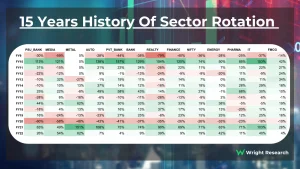
Interest rates have the potential to have a major effect on your finances, whether you’re saving or borrowing. Fortunately, it’s easier than ever to make informed decisions based on the interest rate environment in which you live.
One of the major influences on consumer finance is the Federal Funds rate. This rate sets the cost of borrowing money and affects everything from your mortgage payment to credit card balance.
1. Loans
Interest rates, whether used to finance a car, purchase a home or make another major purchase, can have a significant impact on your personal finances. While borrowers may benefit from periods with historically low rates, it’s also essential to be aware of the potential repercussions of high rates.
Interest rates on loans can differ drastically between lenders. A borrower’s credit history and financial situation are factors in determining how much they’ll pay in fees and interest.
In 2022, the Federal Reserve raised its federal funds rate four times; this has translated to higher interest rates on various loans such as personal ones. While these increases make it costlier for new borrowers to obtain loans, existing ones should not experience an increase in their rates.
2. Savings
Interest rate changes have different effects on consumers depending on their financial habits. Borrowers generally pay more for loans, while savers enjoy higher yields from savings accounts.
Consumers with savings accounts can use them for building an emergency fund or other short-term objectives such as vacations or car purchases. Furthermore, saving for long-term needs and goals such as retirement is important.
In times of economic expansion, the Federal Reserve often raises interest rates to encourage spending and stimulate economic activity. This helps control inflation and encourage businesses to borrow additional money for expansion.
However, high savings rates can erode your purchasing power over time as they may not keep up with inflation. To this end, you might want to consider a high-yield savings account or inflation-matching savings bond as alternatives.
3. Investments
Interest rates have a tremendous effect on your investments. They affect the value of assets such as stocks, bonds and real estate alike.
For instance, the value of a home typically increases when interest rates are low and decreases when they’re high. This is due to reduced borrowing costs and greater access to equity in the property’s worth.
Due to an increasing interest rate environment, debt becomes more costly to borrow, so you may want to prioritize paying off existing obligations before making major purchases.
Savings accounts and other cash investments, like money market funds, can benefit from higher interest rates by growing faster. This could enable you to reach your savings goals sooner.
4. Credit cards
Interest rates on credit cards, like most loans and investments, can have an indirect but substantial effect on your personal finances over time. Rising rates may affect mortgages, auto loans, personal loans, credit card debt and savings accounts alike.
Credit cards are a common way people purchase goods and services with credit. Unlike debit cards, which function like checks you write out for purchases, credit cards use the bank’s money instead of yours and charge interest.
Interest rates on credit cards have a different effect for every consumer, but generally speaking, higher rates make it harder to pay off a balance. Before using your card for something costly, consider whether or not you can afford to make full payments each month and if a lower rate would help save you money in the long run.
5. Other debt
Interest rates have an effect on many types of debt, such as mortgages, auto loans, personal loans, student loans and credit cards. They can make borrowing money costlier for all parties involved – whether you’re the borrower, lender or investor. Your level of impact depends on your debt-to-income ratio – the goal being to keep this low by keeping expenses below 30% of monthly income according to Paul Golden from the nonprofit National Endowment for Financial Education.
Many people find higher interest rates to be a real wake-up call to pay close attention to how much debt they owe. Take control of your situation by paying off credit card balances, staying current on mortgage payments and meeting long-term commitments such as car loans.








